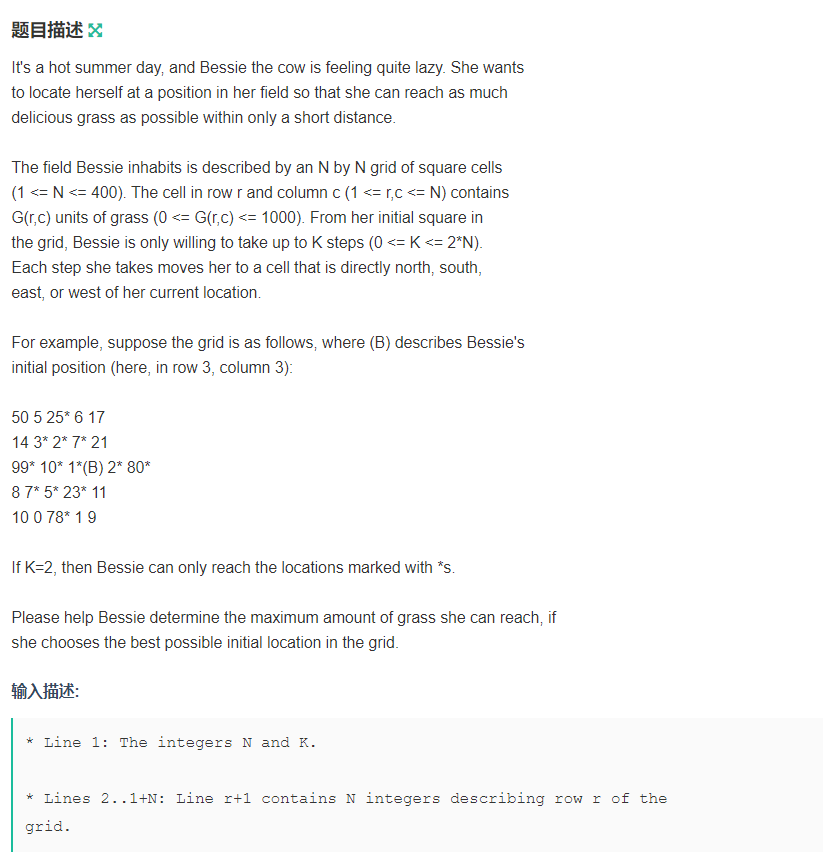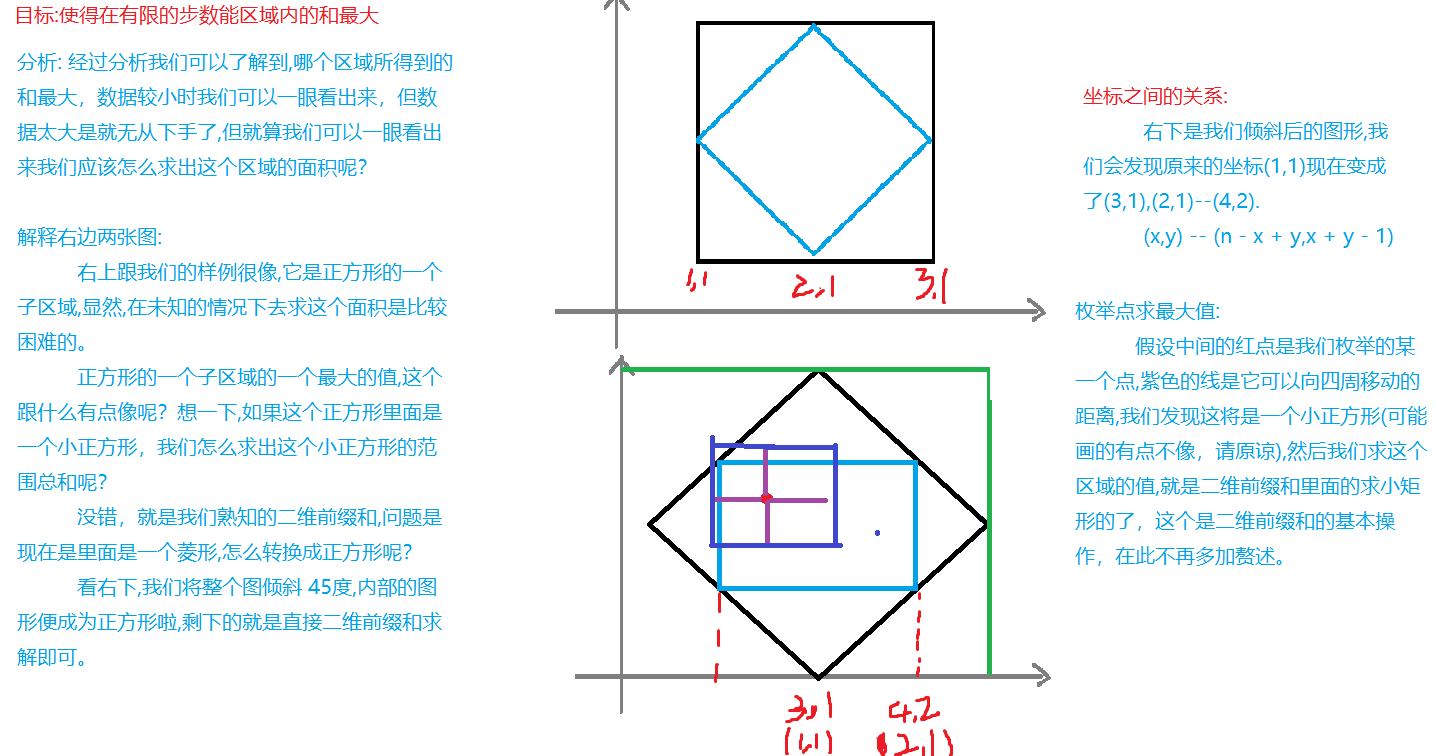题目:

样例:

题目大意:
给一个矩阵,然后可以从其中任意一个点走 k 步,每步可以走向 上、下、左、右 4 个方向,求在这个矩阵中走完
k 步后的最大值。
实际上就是求一个正方形中最大的一个区域(这个区域由一个中心点向外扩散,是一个菱形)。
析题得侃:

Code:
TLE代码:
#include <queue>
#include <cstdio>
#include <string>
#include <cstring>
#include <iostream>
#include <algorithm>
using namespace std;
const int maxn = 405;
typedef long long LL;
struct node {
LL x,y,step;
};
LL a[maxn][maxn],vis[maxn][maxn];
int dir[][2] = {{1,0},{-1,0},{0,1},{0,-1}};
LL n,k;
LL res = 0;
LL BFS(int sx,int sy) {
memset(vis,0,sizeof(vis));
LL sum = 0;
queue<node>Q;
node c,b;
c.x = sx,c.y = sy;
c.step = 0;
Q.push(c);
while(Q.size()) {
node top = Q.front();
Q.pop();
if(top.step >= k) continue;
for(int i = 0; i < 4; i ++) {
int xx = top.x + dir[i][0];
int yy = top.y + dir[i][1];
if(xx < 1 || yy < 1 || xx > n || yy > n) continue;
if(vis[xx][yy]) continue;
int step = top.step + 1;
vis[xx][yy] = 1;
sum = sum + a[xx][yy];
Q.push({xx,yy,step});
}
}
return sum;
}
int main(void) {
scanf("%lld%lld",&n,&k);
LL maxValue = -1;
for(int i = 1; i <= n; i ++) {
for(int j = 1; j <= n; j ++) {
scanf("%lld",&a[i][j]);
res += a[i][j];
maxValue = max(maxValue,a[i][j]);
}
}
if(k == 0) cout << maxValue << endl;
else if(k >= n) printf("%lld
",res);
else {
LL ans = -1;
for(int i = 1; i <= n; i ++) {
for(int j = 1; j <= n; j ++) {
ans = max(ans,BFS(i,j));
}
}
printf("%lld
",ans);
}
return 0;
}
AC代码:
#include <cstdio>
#include <string>
#include <cstring>
#include <iostream>
#include <algorithm>
using namespace std;
typedef long long LL;
const int maxn = 1000;
// B 数组是 A 数组的二倍,倾斜后范围扩大(对应的点有所改变,为了便于计算,遂扩大空间)
int a[maxn][maxn],b[maxn][maxn],s[maxn][maxn];
int n,k;
int main(void) {
scanf("%d%d",&n,&k);
for(int i = 1; i <= n; i ++) {
for(int j = 1; j <= n; j ++) {
scanf("%d",&a[i][j]);
}
}
int m = n * 2 - 1; // B 数组的范围
for(int i = 1; i <= n; i ++) { // 倾斜对应的关系(不好找)
for(int j = 1; j <= n; j ++) {
b[n - i + j][i + j - 1] = a[i][j];
}
}
LL res = -1;
for(int i = 1; i <= m; i ++) { // 前缀和
for(int j = 1; j <= m; j ++) {
s[i][j] += s[i - 1][j] + s[i][j - 1] - s[i - 1][j - 1] + b[i][j];
}
}
LL ans = 0;
for(int i = 1; i <= n; i ++) {
for(int j = 1; j <= n; j ++) {
int x = n - i + j,y = i + j - 1; // 得到倾斜后的坐标
int x1 = x - k,x2 = x + k,y1 = y - k,y2 = y + k; // 对角的坐标
if(x1 < 1) x1 = 1; // 不能超过已有的区域
if(y1 < 1) y1 = 1;
if(x2 > m) x2 = m;
if(y2 > m) y2 = m;
ans = s[x2][y2] - s[x1 - 1][y2] - s[x2][y1 - 1] + s[x1 - 1][y1 - 1];
res = max(ans,res);
}
}
printf("%lld
",res);
return 0;
}
后记:
前路漫漫,吾辈仍需努力!


